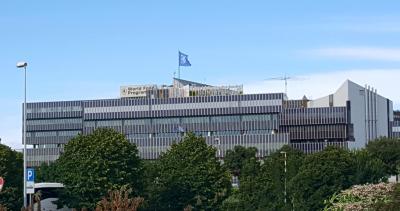WFP launches initiative to support countries worst hit by global food crisis

ROME – France and the UN World Food Programme (WFP) launched a plan through the European Food and Agricultural Resilience Mission (FARM) on Tuesday to support countries worst hit by the global food crisis by boosting sustainable agricultural production and ensuring that the most vulnerable countries have equitable access to supplies of agricultural commodities at a fair price.
The world faces a global food crisis of unprecedented proportions with 345 million people in 82 countries facing worsening food insecurity. The ripple effects of the war in Ukraine have compounded conflict, climate shocks, and the economic impact of the COVID-19 pandemic and left vulnerable families around the world battling starvation and worsening malnutrition.
Global food and nutrition needs are at risk of outstripping the ability of the humanitarian community to respond, creating an urgent need for innovative and collaborative ways to help countries that are acutely vulnerable to food price shocks to stabilise their national food systems and to weather global food market shocks.
The FARM initiative focuses on facilitating trade and transparency on agriculture markets, strengthening sustainably local production, and working in solidarity with the private sector to match food surpluses with countries most in need. This initiative will help countries mitigate the threat of market failures and escalating agricultural prices, by working with all stakeholders – especially the private sector – to stabilise food prices.
The ‘Solidarity Mechanism’ that is being launched offers a platform for a multi-sectoral response and the private sector plays a pivotal role. The private sector is encouraged to collaborate with WFP by providing food commodities, supply chain solutions and agricultural inputs at favourable costs to ensure that WFP operations are sustained and able to reach countries and people most in need. To this end, WFP has started discussions with the Global Business for Food Security (GFS) coalition.
WFP’s deep field presence, network of partners of the ground, advanced data analytics capacity, global logistics network, and significant purchasing power put the agency in a unique position to work in solidarity with the private sector and key international partners and organisations, including the Food Agricultural Organization (FAO) and International Fund for Agricultural Development (IFAD), to address the acute food needs of the most fragile countries, especially in Africa.
Within this solidarity “call for action,” WFP will prioritise local procurement within its own humanitarian operations, opting for regional and international purchasing only when commodities are not available locally. WFP will use its transport network and logistics expertise to make sure fragile imported-dependent countries have access to key commodities, particularly cereals, at preferential prices for the goods and transport. Crucially, this will allow WFP to deliver more impact through its emergency food and cash assistance, while simultaneously building longer-term resilience of national food systems and reducing dependency on concentrated food markets.
WFP’s work with France through the FARM initiative builds on close collaboration around school meals, the largest and best functioning social assistance program for children in the world. France, as co-leader of the School Meals Coalition, has worked tirelessly with WFP to ensure that government-led school meals programs can be rapidly scaled up in response to shocks, providing a crucial social safety net for the most vulnerable.
al
© COPYRIGHT ITALIAN INSIDER
UNAUTHORISED REPRODUCTION FORBIDDEN


